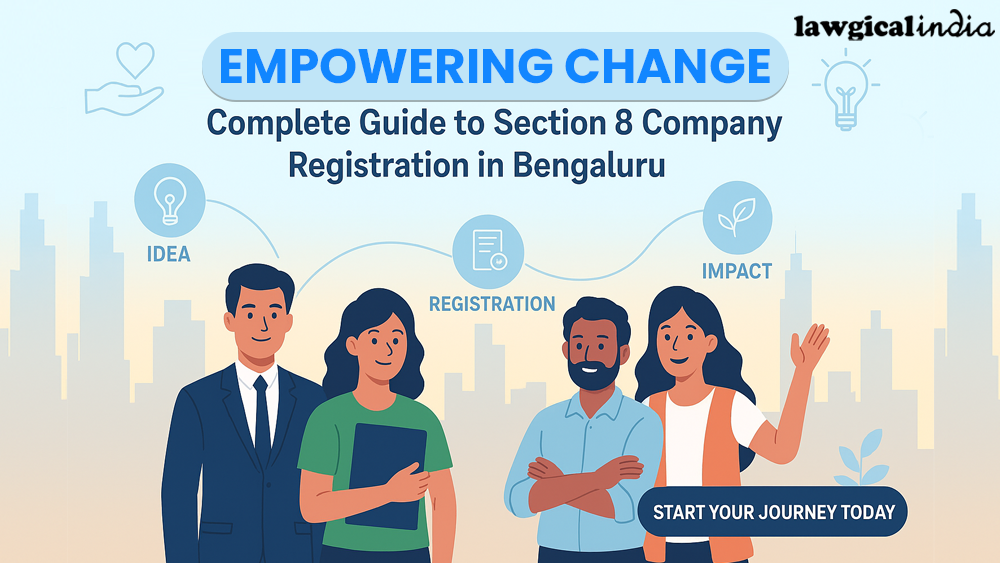Starting a business in India is not as easy as it seems. It is a complex process and requires a lot of expertise. The main problem that most new entrepreneurs faces are choosing the proper business structure for registering their business. OPC (one-person company) and sole proprietorship seem to be very similar to each other but have specific differences. In this article, we will discuss the difference between a sole proprietorship and One person company, which will help you decide on the best business form. Before discussing the difference, let’s understand more about OPC and sole proprietorship.
What is OPC (one person company)?
A single individual can start a one-person company, unlike a private limited company, which requires at least two members. Its main feature is that only one shareholder holds 100% of company shares and enjoys full ownership and control. This type of company structure was introduced through the act of 2013 to eliminate the drawback of requiring a minimum of 2 or more members to start a private company. A nominee is appointed in one person company whose role comes into action on the death or inability of the owner.
Benefits of one person company registration
- Separate legal entity
- Lower compliance requirement
- Limited liability
- Separation of management and ownership
Documents required for one person company registration
- PAN card
- Photograph
- Identity proof
- Director’s address proof
- Business address proof
- NOC from owner
- Rent agreement
This is all you need to know about one person company registration. Now let’s discuss sole proprietorship registration.
What is a sole proprietorship?
When an individual solely carries out the business activity, the business type is called a sole proprietorship. The sole means single, and the proprietor means the owner, so sole proprietorship is the business owned by a single person. In this type of business structure, the identity of the owner and business is no different; that is, the industry has no separate legal entity, unlike OPC and private limited company. This is the most popular form of business opted for by the majority of people as it has multiple advantages, like low tax rates and flexibility, which is why people consider it at the early stages of business. There is no specific Act to regulate this type of organization, but there are many ways for sole proprietorship registration.
Benefits of sole proprietorship registration
- BYOB (be your boss)
- Easy to establish
- You Own a Whole Share of the Profit
- Tax benefits
Documents required for a sole proprietorship registration
- Aadhar card
- PAN card
- Bank account
Difference between sole proprietorship and one-person company
OPC and sole proprietorship have pros and cons; you can’t say that one is better. You can say that one person company is more suitable for mid-sized businesses, while sole proprietorship registration is more suitable for small businesses.
Let’s discuss some distinctions between the two forms of structure, which will help you decide which one is best suited for you.
Liability of the promoter
In a sole proprietorship, the proprietor has unlimited liability, which means that if the business cannot repay its debts, the creditor can have its assets sold off to recover the amount. This is because a sole proprietorship does not have a separate legal entity. On the other end, the director of the one-person company (OPC) is totally protected in such situations. As it has a separate legal entity, its assets are always protected. That’s why if your business does not involve many huge investments, then you should choose the sole proprietorship, and if it is contrary, you should go with the one-person company (OPC).
Start-up cost
The start-up cost of starting a sole proprietorship business is comparatively low than that one person company as there is no requirement for registration. If you are obtaining GST registration as a person & license under the Shops and Establishment Act, you are a sole proprietor. The cost of sole proprietor registration is somewhere around Rs 5000. On the other hand, one person company registration involves a lengthy and complex process. It consists of a lot of documentation, and the cost of doing all this will be around Rs 15000. So, the start-up cost for a sole proprietorship is meager compared to an OPC.
Taxation
An OPC is treated as a private limited company only. Since it is registered as a private limited company, they are taxed according to the income tax for personal little company provisions. On the other hand, in the case of a sole proprietorship, income generated by the company will be treated as the owner’s income and, thus, taxed as an individual’s income.
The succession of the company or business
In the case of an OPC, a nominee is appointed, who, in the case of death or inability of the owner, is given the charge of the business, and the industry continues as it is. The nominee must have Indian citizenship, and the nominee should be a resident of India. In the case of the sole proprietorship, the company ends with the owner’s demise, as both are considered single entities. Thus, succession can only occur via execution of the last testament of the owner, where they pass on the proprietorship to another person.
Annual compliances
Sole proprietorship needs only to submit ITR and maintain their books of accounts. At the same time, one person company (OPC) should also have its books audited, make annual submissions, and inform the Registrar of Companies if any changes are made. OPC would spend at least Rs. Ten thousand on compliances.
Whether you choose a sole proprietorship or an OPC, both must undergo a registration process, which requires documentation and a filing procedure. Lawgical India is a legal service provider offering its services for registering companies. Lawgical India can make your job easy and assist you with registration. They have a team of experts who will undertake the entire registration process on your behalf. It is a one-stop for those looking to start a business but is not entirely aware of all the procedures and documentation required to create a new business.











